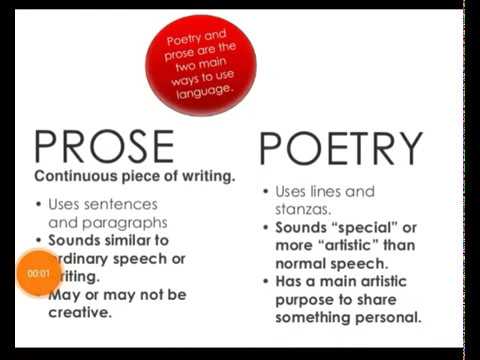Poetry and prose
Poetry and prose
Sensible things have been said about the question. Sad Broken Heart Shayari In Hindi. The poet T.S. Eliot suggested that part of the difficulty lies in the fact that there is the technical term verse to go with the term poetry, while there is no equivalent technical term to distinguish the mechanical part of prose and make the relation symmetrical. Broken Heart Sad Shayari Bengali Lines. The French poet Paul Valéry said that prose was walking, poetry dancing. Indeed, the original two terms, process, and verses, meant, respectively, “going straight forth” and “returning”; and that distinction does point up to the tendency of poetry to incremental repetition, variation, and the treatment of many matters and different themes in a single recurrent form such as couplet or stanza.
American poet Robert Frost said shrewdly that poetry was what got left behind in translation, which suggests a criterion of almost scientific refinement: when in doubt, translate; whatever comes through his prose, and the remainder is poetry. Emotional Breakup Shayari In Hindi. And yet to even so acute a definition the obvious exception is a startling and a formidable one: some of the greatest poetry in the world is in the Authorized or King James Version of the Bible, which is not only a translation but also, as to its appearance in print, identifiable neither with verse nor with prose in English but rather with a cadence owing something to both.
There may be a better way of putting the question by the simple test alluded to above. When people are presented with a series of passages drawn indifferently from poems and stories but all printed as prose, they will show a dominant inclination to identify everything they possibly can as prose. Blue Picture Hindi Mein HD. This will be true, surprisingly enough, even if the poem rhymes and will often be true even if the poem in its original typographical arrangement would have been familiar to them. The reason seems to be absurdly plain: readers recognize poetry by its appearance on the page, and they respond to the convention whereby they recognize it by reading it aloud in a quite different tone of voice from that which they apply to prose (which, indeed, they scarcely read aloud at all). Heart Touching Sad Quotes In Hindi. It should be added that they make this distinction also without reading aloud; even in silence, they confer upon a piece of poetry attention that differs from what they give to prose in two ways especially: in tone and in pace.
Before objecting that a simple comparison cannot possibly cover all the possible ranges of poetry and prose compared, the reader should consider for a moment what differences are exhibited. Mood Off Status In Hindi. The passages are oddly parallel, hence comparable, even in a formal sense; for both consist of the several items of a catalog under the general title of growing old. The significant differences are tone, pace, and object of attention. If the prose passage interests itself in the neutral, material, measurable properties of the process, while the poetry interests itself in what the process will signify to someone going through it, that is not accidental but of the essence; if one reads the prose passage with an interest in being informed, noting the parallel constructions without being affected by them either in tone or in pace while reading the poetry with a sense of considerable gravity and solemnity, that too is of the essence. Best Funny Memes In Hindi. One might say as tersely as possible that the difference between prose and poetry is most strikingly shown in the two uses of the verb “to fall”
It should be specified here that the important differences exhibited by the comparison belong to the present age. In each period, speaking for poetry in English at any rate, the dividing line will be seen to come from a different place. In Elizabethan times the diction of prose was much closer to that of poetry than it later became, and in the 18th-century authors saw nothing strange about writing in couplets about subjects that later would automatically and compulsorily belong to prose—for example, horticulture, botany, even dentistry. Best Romantic Love Shayari Gujarati. Here is not the place for entering into a discussion of so rich a chapter in the history of ideas, but the changes involved in the relation of poetry and prose are vast, and the number of ways people can describe and view the world is powerfully influenced by developments in science and society.
Poetic diction and experience
Returning to the comparison, it is observable that though the diction of the poem is well within what could be commanded by a moderately well-educated speaker, it is at the same time well outside the range of terms in fact employed by such a speaker on daily occasions; it is a diction very conscious, as it were, of its power of choosing terms with an effect of peculiar precision and of combining the terms into phrases with the same effect of peculiar precision and also of combining sounds with the same effect of peculiar precision. Doubtless, the precision of the prose passage is greater in the more obvious property of dealing with the measurable, but the poet attempts a precision with respect to what is not in the same sense measurable nor even in the same sense accessible to observation; the distinction is perhaps just that made by the French scientist and philosopher Blaise Pascal in discriminating the spirits of geometry and finesse; and if one speaks of “effects of precision” rather than of precision itself, that serves to distinguish one’s sense that the artwork is always somewhat removed from what people are pleased to call the real world, operating instead, in Immanuel Kant’s shrewd formula, by exhibiting “purposefulness without purpose.” To much the same point is what Samuel Taylor Coleridge remembers having learned from his schoolmaster:


Comments
Post a Comment